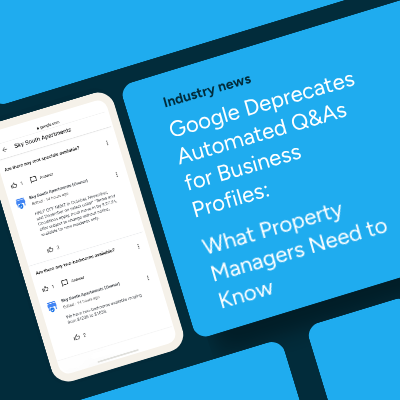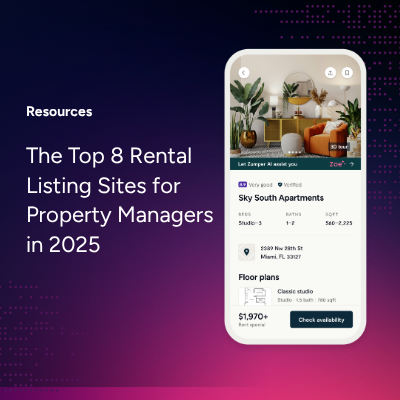
Buying a rental property is a great way to secure your financial future while learning the ropes of real estate investment. Many people jump into purchasing rental properties without doing their research on the nuances of buying and managing real estate, which can result in significant financial losses. Luckily, you can learn from the mistakes of others and avoid common pitfalls by researching the fundamentals.
Enter the real estate market with confidence once you learn about the types of properties recommended for beginners, assess the risks associated with buying a rental property, and prepare strategies for getting the greatest return on your investment. Following a guide to investing in rental properties can help you get a strong start in real estate without having to learn through trial and error.
Determine Your Financial Resources
Understanding your own financial resources is the first step to making a smart real estate investment. Well-established investors with access to large amounts of capital often buy rental properties through all-cash offers in order to avoid mortgage interest and increase cash flow right away. If you’re just starting out, you probably don’t have the same financial resources, meaning you will need to take out a mortgage.
Lenders that provide loans for rental properties often require a downpayment of 20% or more, so you should be prepared to save up at least this amount to secure financing for your investment. If you already own your home, you may be able to avoid this requirement by purchasing another property to live in and renting out your current residence. Buying a home as your primary residence often involves a much lower down payment than buying a home as a rental investment.
You can then convert the new property into a rental after living there for one year, giving you a chance to get started with multiple rental properties without having to pay a large sum upfront.
Taking out a home loan is a big responsibility, but by using rental income to cover mortgage payments and maintenance, you can start earning passive income while building equity. If you’re interested in buying your first rental, shop around at different banks to learn more about the full financial commitment. Consider reaching out to a financial advisor to help you set and achieve short- and long-term goals for your rentals.
Study the Real Estate Market
Look at the short-term and long-term market trends in different areas to get an idea about when and where to invest. You’ll have to know more than just the average rent price in your area in order to choose a great location and timeline for your first investment. Performing a market analysis using different statistics can help you choose rental properties that are likely to earn you money. You should research a few key factors when scouting an area for their first rental property.
Rate of Appreciation
Real estate has intrinsic value, making it a commodity that is generally worth more as time goes on. Beginning investors should look for areas where the rate of appreciation is higher than the current national average, which fluctuates.
Median Home Price
Part of completing a market analysis is understanding the perspective of the customer. If an area’s median home price is high, this could be a good sign that a lot of people are looking for rentals as an alternative to buying a home.
Price-to-Rent Ratio
The price-to-rent ratio, or PR, is an area’s median home price divided by the median annual rent. Generally, a PR of 21 or higher indicates that people are looking to save money by renting.
Occupancy and Vacancy Rates
Understanding how many empty apartments are in your area can help you determine the local demand for rentals. Areas with high occupancy and low vacancy rates are favorable because you can be confident that you will find people to rent your property.
Choose an Investment Strategy
Once you have a strong understanding of the local market, identify your main goals for owning a rental property. Consider your financial goals in addition to other factors like your day-to-day involvement in property management and the type of property you want to own. Many first-time investors opt for traditional rentals, where they lease homes, condos, or apartment buildings for a year or more.
Short-term vacation rentals are another popular option for budding investors, especially with the popularity of services like Airbnb. You can rent out single rooms or entire properties depending on your needs. When investing in vacation rentals, it is important to choose a popular location that will draw a regular stream of renters and maximize the profit potential of the space. You can also consider buying a turnkey rental, where you buy a fully furnished and renovated property from a company that manages maintenance and finds renters on your behalf.
Assess All Expenses
Many first-time property owners forget about expenses like property taxes and insurance, leaving them unprepared to maintain their property long term. As you narrow your search down to properties that meet your criteria, research the unique operating costs of each space to avoid getting a surprise bill. Calculate the expected cost of utilities and other operating expenses associated with day-to-day management.
Be sure to personally tour each property and make note of any features you need to repair or upgrade. Hiring a certified home inspector can be a great way to identify possible maintenance issues before committing to a purchase.
Research Legal Responsibilities
Whether you decide to manage the property yourself or hire someone else to handle the day-to-day needs of your renters, you ultimately have a legal responsibility for your rental property. You need to stay informed about building codes, understand your obligations as a landlord, and pay attention to renter’s rights in your area in order to protect yourself and your investment.
Seeking advice from seasoned investors, lawyers, financial advisers, and other experts along the way can help you skip the growing pains of buying your first rental property. By preparing for the risks associated with owning a rental property, you can help maximize your profits and get the best possible return on your investment.



